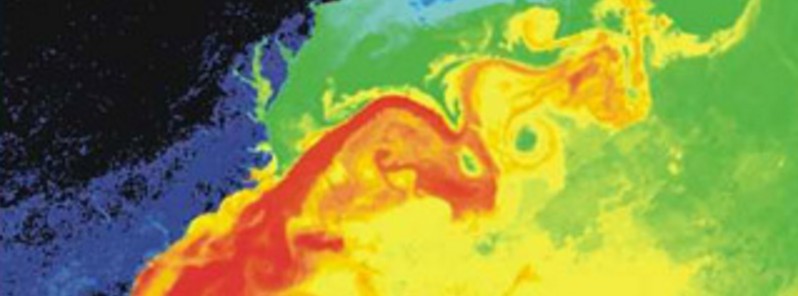Study suggests Gulf Stream weakening associated with a recovery from earlier strengthening

The Atlantic Meridional Overturning Circulation (AMOC), part of which is known as the Gulf Stream, has been seen weakening over the past decade. Although this weakening trend raised questions whether it has been caused by climate change, a new research suggests this decrease is consistent with a recovery following a previous increase.
Any substantial weakening of a major North Atlantic ocean current system would have a profound impact on the climate of northwest Europe, including the UK, UK's Met Office, whose Laura Jackson is the lead author of the new study, writes. Commenting on the paper, published last week, Jackson said: "The Atlantic Meridional Overturning Circulation plays a vital role in our climate as it transports heat northwards in the Atlantic and keeps Europe relatively warm."
The research produced a picture of how the ocean has evolved over the last couple of decades. The reanalysis reproduces the observed decrease in the Atlantic Meridional Overturning Circulation over the past decade, but finds that this was preceded by a period where the circulation intensified. This suggests that decadal timescale variability likely played a key role in the weakening of the circulation seen over the last decade.
The researchers are keen to stress that this does not rule out the possibility that the observed weakening is a combination of decadal variability and a longer term decrease that would only be detectable after more years of observations.
The research also shows a link between the weakening in the Atlantic Meridional Overturning Circulation and decreases in density in the Labrador Sea (between Greenland and Canada) several years earlier.
"Continued monitoring of densities in the Labrador Sea may provide us with useful information about future changes in the Atlantic Meridional Overturning Circulation," Jackson added.
References:
- "Recent slowing of Atlantic overturning circulation as a recovery from earlier strengthening" – Laura C. Jackson K. Andrew Peterson Chris D. Roberts & Richard A. Wood – Nature Geoscience aop, (2016) – doi:10.1038/ngeo2715.
- "Research provides new perspectives on recent changes in the Atlantic Ocean " – an article published on UK's Met Office
Featured image: Surface temperatures in the western North Atlantic. The North American landmass is black and dark blue (cold), while the Gulf Stream is red (warm). Credit: NASA

Let People Know Well ……….